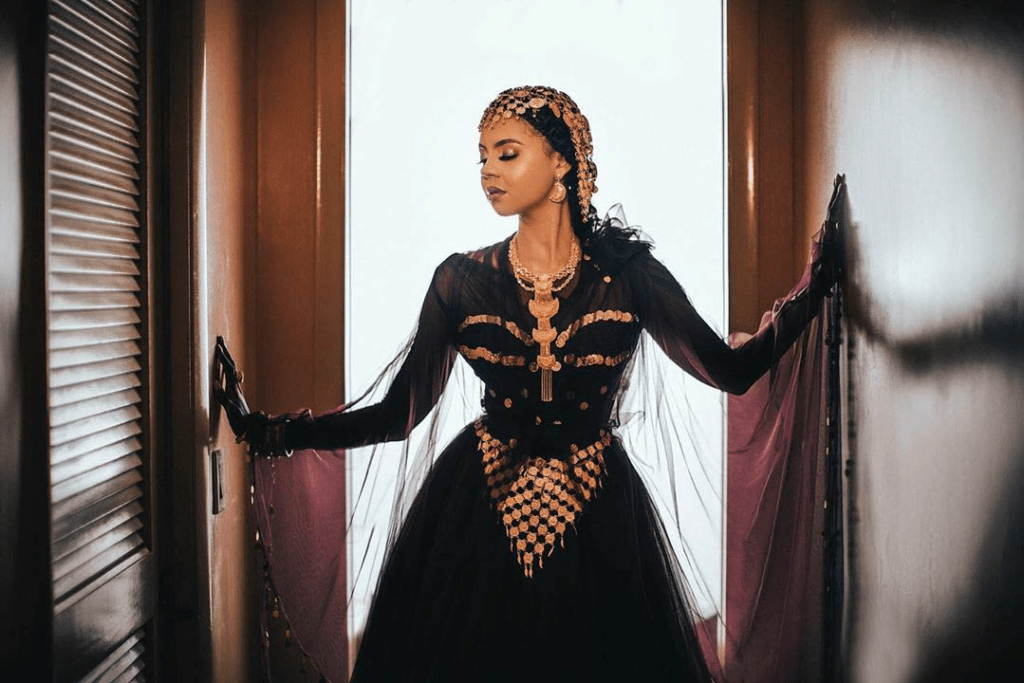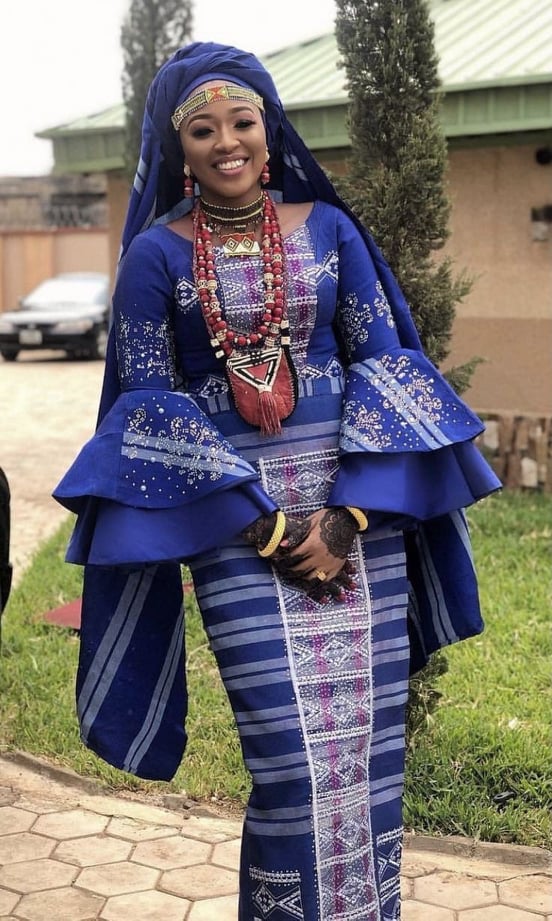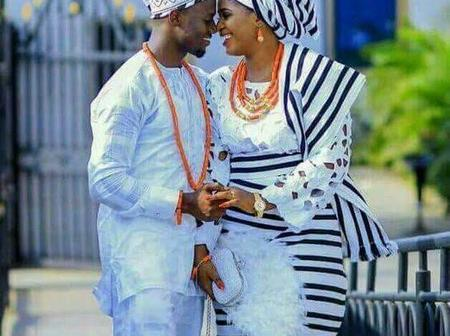Tope admired the ring on her finger and smiled. Her mind walked down memory lane to the time her fiance proposed to her. How surprised she had been when he went down on one knee, holding the ring in his hand. She remembered the excitement on her friends’ faces; how they kept cheering her to say yes. She smiled and adjusted the ring on her finger. That was three months ago. And now, she was saddled with the task of looking for the best traditional wedding dress styles for her upcoming traditional marriage.
If only she could find something that would make her the cynosure of all eyes on her day. She shuffled between Instagram and Pinterest and got tired when her eyes had seen enough.
They looked great, no doubt, but she wasn’t satisfied. She needed more because she hadn’t found that one style she could show to her designer.

That’s what every bride wants, right? The perfect traditional wedding attire that would earn you compliments and grace the pages of blogs.
If that’s also your goal as you prepare to tie the nuptial knot with your groom the traditional way, you’re not on the wrong path.
You’ll find in this post dazzling Nigerian traditional wedding dress styles.
Go for the one that represents your tribe. Then rest assured you’ll command attention and make your groom fall much deeper in love with you on your day.
Nigerian Traditional Wedding Dress Styles

One thing similar to every traditional wedding attire in Nigeria is their ability to transform a bride once she wears them.
These dresses evoke class, royalty, and beauty. They’ll also help you fulfill your dreams of keeping all eyes on you on your day.
So long as you choose the right wedding hairstyle and wear good makeup with your gele, veil, or coral beads (as the case may be), you’ll look stunning.
But it all depends on the quality of your fabric. No doubt, your wedding fabric has to be colorful and unique. They also need to be of high quality too.
This leads us to the question: what makes a good wedding fabric?
Doyin Fashakin, owner of Doyin Fash Events, a luxury bridal consultancy and events company in Houston, answered it well enough. In her words as featured in the New York Times:
“No synthetic fibers or blends; the material should be 100 percent lace or silk. The material also shouldn’t bunch or fade. There shouldn’t be loose threads and it should always feel good against your skin.”
Doyin Fashakin
So, go for a beautiful color for yourself, your groom, and your family and friends who’ll wear your asoebi.
And since the style of each traditional wedding dress depends on your tribe, let’s look at the traditional wedding dress styles in Nigeria.
Kanuri

Kanuri bridal looks have this Arabian feel. You’ll almost think they are Arabs especially if the bride is light-skinned.

Apart from their glittery fabric, jewelry, and beads, a Kanuri bride never forgets to adorn her hands and legs with henna designs. It’s something typical of every Northerner.

Fulani

Fulani bridal attire is also similar to the Kanuri bride. As typical of every Arewa bride, your henna, veil, and jewelry are important.

If this is your tribe, you can either leave your hair open after adorning it with beads and accessories or cover it with a veil/head tie.

Yoruba

The Yoruba bride is known by her Aso oke (which literally means top cloth) and her gele.
If this is your tribe, you can also rock a lace attire or even George, and embellish it with hand-stitched beads, pearls, and stones. They’ll further beautify your traditional wedding dress.

Your gele should be a fashion statement on its own. But you need not worry yourself about how you’ll go about that.

Instead, go through our catalog to see the best gele styles curated for trendy brides like you.
Igbo, Delta, Edo Brides

These tribes have different cultural attire. If you fall under any of these three, go for a dress or skirt/wrapper and blouse made with lace, silk, Isi Agu, or George fabric with/without a gele to complement.

The dominant theme of an Eastern bride’s attire is her coral beads. These beads not only adorn her hair; they also adorn her ears, wrists, shoulders, and her body as a whole.

Efik

Efik brides are known for their gold hair clips and brass combs. But that’s not all.

Their traditional wedding dress styles stand out. Is it the Oyoyono or the Ofon Ukot Awan? Efik bridal outfits come with a recognizable, alluring drama.

If this is your tribe, own it by rocking your tribal bridal attire with pride. It’s your cultural heritage.
Tiv

You know a Tiv bride by the signature black and white stripes of her fabrics. If this is your tribe, use the striped fabric to sew a skirt or tie it as a wrapper and pair it with a white blouse.

You can also use the fabric around your head as your gele.

Traditional Wedding Styles and Accessories

Your wedding day is one of the most important days of your life. It only happens once in a lifetime, and as such, you should rep your fashion taste well.
Don’t appear in the presence of your family and friends looking frumpy. In fact, it’s forbidden. So, after choosing any of the native wedding dress styles you’ve seen in this post, make room for accessories.

Invest in quality bracelets, necklaces, and every other jewel that’ll present you as the gorgeous queen that you are. If you need a handbag, go for a fanciful one like a Minaudière (bejeweled clutch bag). It’ll add more sparkle to your dazzling look.
Furthermore, don’t go overboard with your makeup lest you should look like a masquerade on your day. Ask your makeup artist to give you the perfect bridal makeup. That is one that is simple enough to accentuate your beauty and loud enough to help you steal the show.

In the same vein, your shoes should also elevate your look. Go for heels that aren’t too high unless you feel comfortable walking in them. Open-toe heels are great for occasions like this so your groom and guests can see your beautifully painted toenails and admire them.
Scroll down to see more traditional wedding attire for both brides and grooms.

































